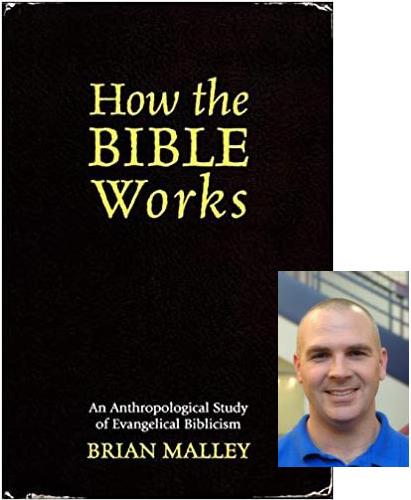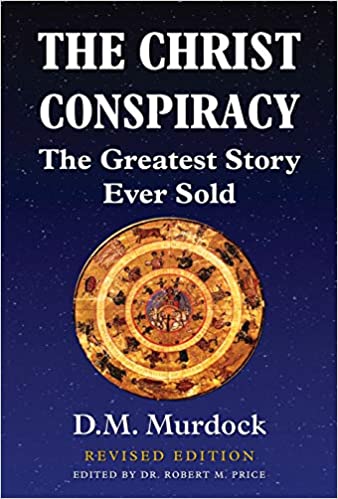 The following is from How the Bible Works: An Anthropological Study of Evangelical Biblicism by Brian Malley.
The following is from How the Bible Works: An Anthropological Study of Evangelical Biblicism by Brian Malley.
| Now it is a curious situation when an unclear idea has clear consequences. — Malley, 136 |
Evangelicals (or fundamentalists) believe that the Bible is authoritative and declare that the reason it is authoritative is that it is the “word of God” or “inspired by God”.
Uncertainty about the idea of inspiration
However, as Malley demonstrates, the same believers in biblical authority do not know exactly how inspiration worked. Evangelicals uniformly believe in the doctrine of biblical inspiration but disagree about the meaning of inspiration: Is the Bible inerrant in all matters or only in spiritual matters? When asked, evangelicals are “quite vague about the process” of inspiration.
That the Bible is inspired is generally found in statements of faith but it is rarely discussed in Bible studies or sermons. When asked about the meaning or process of inspiration, believers will respond with phrases like the Bible’s authors were “mentally stimulated through a spiritual force”, that God had the writers “attuned” or that “God guided their thoughts” or “impressed their minds.”
When I pressed for further details, most informants said that they did not know. I eventually thought to ask a few informants whether it bothered them that they did not know, and, as one man told me, “Not really. I mean, I probably should find out, just so I would know what to tell people, but I’m not worried about it.”
It is important to note that my informants’ responses were quite variable in their wording. Apart from those few who used the words θεόπνευστος and “God-breathed,” they did not seem to be drawing their answers from any common source. And indeed this may be the case because, although there are frequent allusions to the doctrine of inspiration at Creekside Baptist, I never heard it explicitly discussed. (p. 134)
On the concept of Plenary Inspiration, the teaching that the whole of the Bible is inspired, most of Malley’s interviewees declared that the entire Bible is God-inspired. There was less agreement on whether the Bible was the only book inspired by God.
. . . some thought that there were degrees of inspiration, and that other texts might be inspired, but less so than the Bible; some thought that there were kinds of inspiration, and in this way differentiated between biblical and other inspired texts. All informants, however, agreed that the Bible is inspired differently than any other text. One of the most interesting notions came from a man who, in addition to differentiating the Bible with respect to extent of inspiration, also said, “Other texts might be inspired, but we know the Bible is inspired.”
Most fundamentalist and evangelical theologians will say that they believe in Verbal Inspiration, that the very words in the Bible are inspired. Most of those Malley surveyed ticked their agreement with the statement that “The words of the Bible are inspired.” Yet . . .
. . . in interviews, few of my informants expressed strong views on this, and several said that it did not make any practical difference whether the words or the ideas were inspired.
When pressed, some respondents were found to say that the original autographs were inspired but over time errors have crept in through translations and copying. They will insist that the details are unimportant and that despite some limited corruption the main ideas inspired by God have been preserved.
Certainty about the authority of the Bible
When informants said that they did not know exactly how inspiration worked, I followed up with questions about the implications of the doctrine: Does it entail that God is the author of the Bible? Does it entail that the Bible is true? Does it entail that the Bible is authoritative? Each of these questions received an unhesitating, confident yes from all interviewees. Whatever uncertainty they had about the nature of inspiration did not extend to its implications. (p. 136)
Evangelicals will say (Malley empirically demonstrates that they do) that because the Bible is inspired by God it is therefore authoritative. The doctrine of biblical authority is said to be “a consequence of its divine inspiration.”
The doctrine of inspiration is indeed often invoked as a justification and explanation of the authority that evangelicals attribute to the Bible.
Inspiration as rationalization
Here is the interesting observation of Malley: Continue reading “How Believers Rationalise Biblical Authority”

